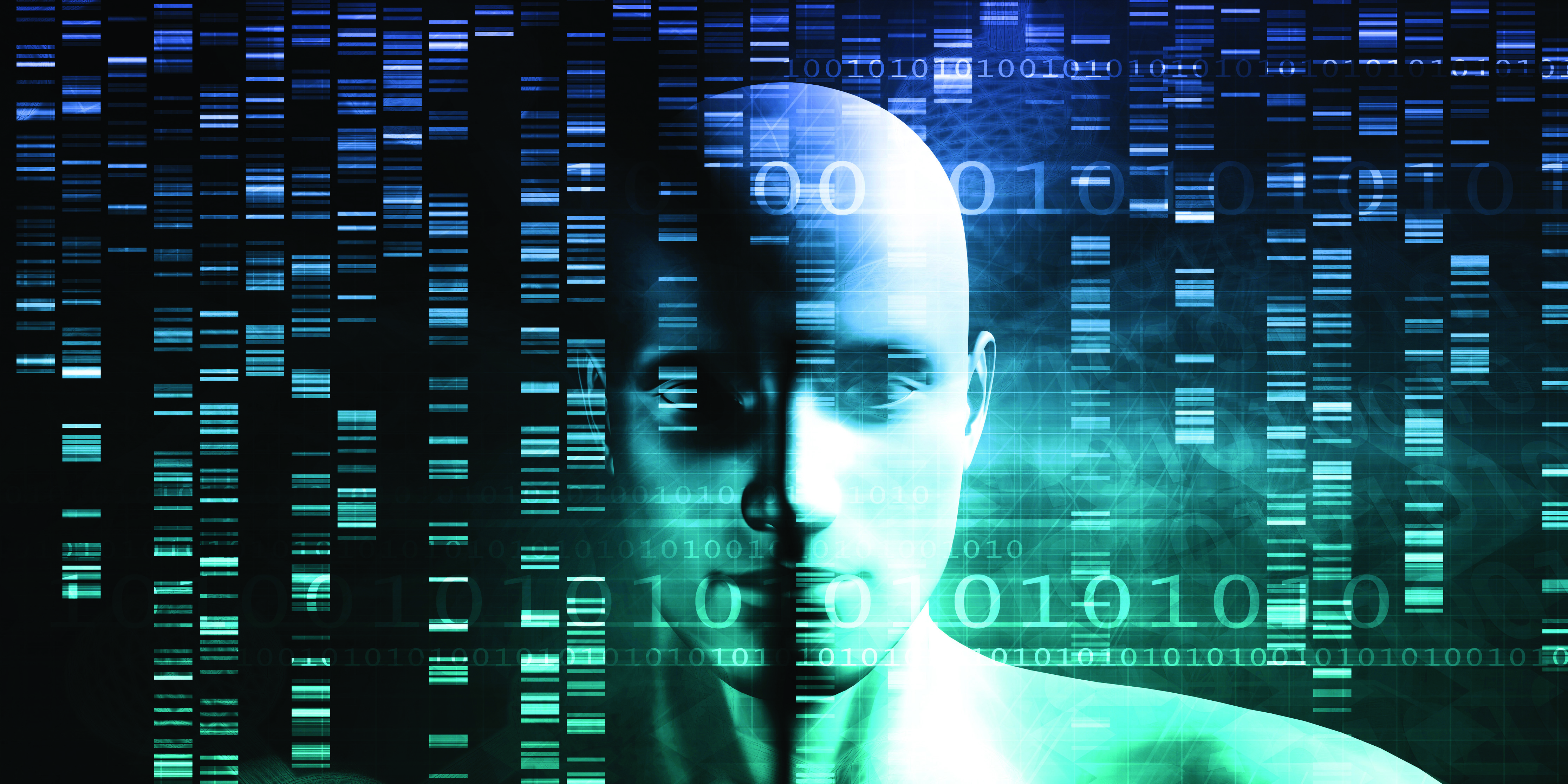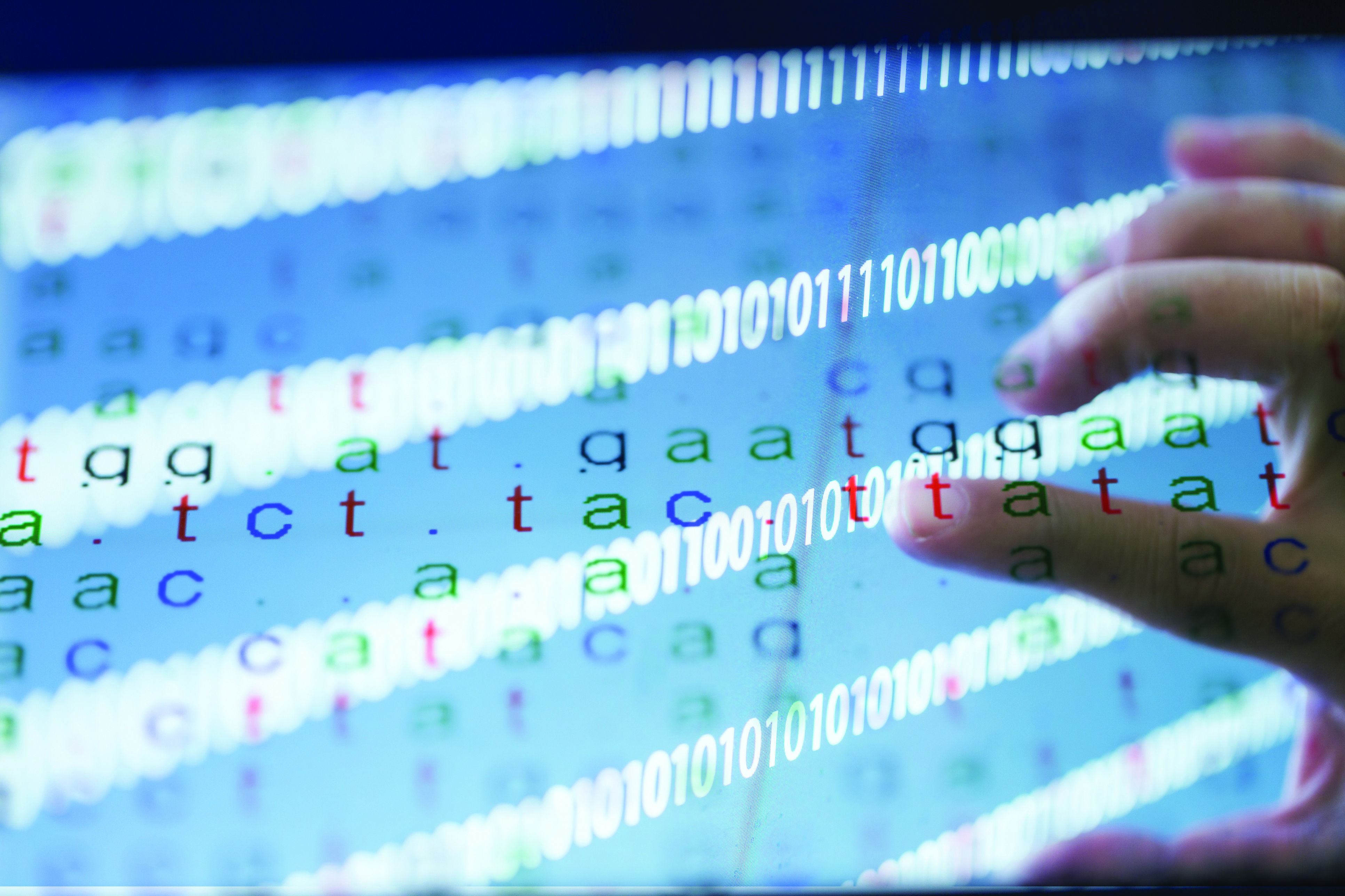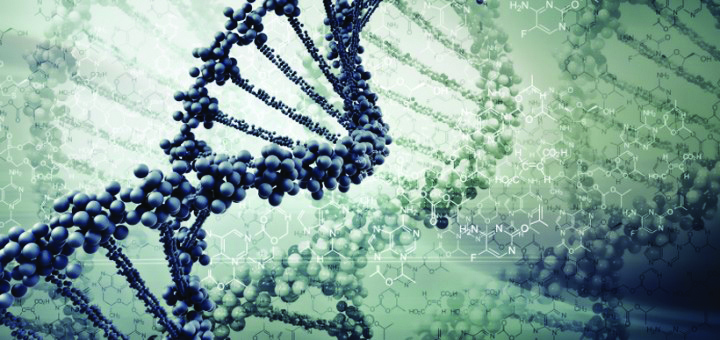Genomics can give healthy patients a peek into their future risk of disease. But when is this information empowering, when is it toxic – and who gets to decide?
“You have to be realistic, with a heart condition like yours.”
“Mom, there’s a chance there’s nothing even wrong with my heart.”
“One chance in a hundred!”
– Science fiction film Gattaca, 1997
There are uncomfortable moments in history where reality and science fiction collide. The marketing of whole genome sequencing to healthy patients in Australia is one such occasion.
When the first human genome was sequenced 14 years ago, it cost around $3 billion. Since then, the technology has plummeted in price.
Now, for the first time, it is possible for healthy adult Australians to have each letter in their DNA spelled out – for a total cost of $6400.
The test reveals the patient’s risk of developing 31 cancers, 13 heart conditions, and five other inherited conditions.
It also predicts the patient’s chance of having adverse reactions to around 200 medications.
Genome.One, a subsidiary of the Garvan Institute of Medical Research, has taken around 40 patients through the process since launching Australia’s only accredited genomics service in June this year. The company’s expansion into genomics for healthy people is controversial.
“At this stage, I wouldn’t refer a healthy person to have this test done,” Brisbane GP Dr Justin Coleman says.
“I have never yet in my career referred anyone to a geneticist without a specific reason and I don’t see why that would change today just because this service is available.”
Screening tests often cause more harm than good, which is why very few are recommended by the RACGP’s Redbook guidelines, according to Dr Coleman.
Genomics presents even greater challenges than most pathology screening tests. At the very least, it is difficult to translate data on hundreds of genes into something that makes sense to the patient. At worst, screening for genetic disease risk creates a thicket of potential ethical dilemmas – and could even damage the patient’s well-being.
“There is great and growing concern about the potential for genomic testing to bring a tsunami of over-diagnosis,” says Ray Moynihan, a researcher at Bond University.
“When you have this new wave of technology that can pick up propensity for disease there is clearly a massive danger of labelling people unnecessarily, of diagnosing people unnecessarily, of treating people unnecessarily.
“And I think it’s absolutely clear that we have to address this potential harm and we have to address it now before we see widespread roll-out of this technology.”
The positives
Genome.One is taking a very cautious approach, says Mary-Anne Young, the company’s lead genetic counsellor.
The company is engaging GPs and genetic counsellors, and has limited itself to class 4 or 5 genetic variants, for which the scientific evidence indicates more than 90% likelihood of the variant being disease-causing. There are 20,000 genes in the human genome, but Genome.One only analyses 232 of those.
And only a fraction of the general population (around 1-5%) have an abnormality in these genes, so most people will get a normal result.
“We report back on those genes that have demonstrable clinical utility and where there is a strong scientific evidence base for their use in managing health,” Genone.One’s CEO Associate Professor Marcel Dinger told The Medical Republic.
The raw genomic data is not provided to the patient, which removes the possibility of them seeking further analysis from less reputable sources. “Our approach has been extreme in terms of applying genomics responsibly,” says Professor Dinger.
“We understand that it is new territory – there are potential risks.”
Genome.One’s controlled approach is a marked departure from the “Wild West” of retail genetic testing. A slew of companies, mostly based overseas, have been offering cheap, direct-to-consumer genetic testing with dubious clinical value.
Australians can now take a saliva sample, mail it off to businesses such as 23andMe or myDNA, and receive a report on their genetic makeup at an affordable price.
These tests are usually of recreational or general interest only, providing details such as ancestry or Neanderthal gene variants.
For more gullible or frivolous consumers, tests for football genes or for gauging wine preferences are also available.
But an increasing number of companies are pushing into the health domain, promising personalised advice on diet, fitness, skincare and weight loss – much to the alarm of health regulators, consumer protection authorities and health professionals.
Authorities are now clamping down on inappropriate testing. In July this year, new regulations came into force mandating the accreditation of genetic tests by the National Association of Testing Authorities and the National Pathology Accreditation Advisory Council.
There are several important differences between the mainstream market and what Genome.One is doing, says Professor Dinger.
Unlike Genome.One’s product, the vast majority of the direct-to-consumer tests are not accredited and therefore can’t be used for clinical decision-making. “That’s probably the single most important aspect,” he says. “But secondly, [these] tests only look at a very, very small percentage of the genome, often less than 1% or 0.1%, so they are certainly not genome sequencing.”
And direct-to-consumer tests, by definition, don’t involve a genetic counsellor.
They also don’t involve doctors in the process, although GPs are often the first port of call for patients when the confusing – and often meaningless – results arrive in the mail.
Genome.One’s product is essentially a scaled-up version of existing clinical genetic tests, which target an individual gene or an individual condition, Professor Dinger says. “It is similar to that, except … this can test hundreds or thousands of conditions at once.”
While he couldn’t discuss the participants of the program for privacy reasons, Professor Dinger said he did benefit from having his own genome sequenced. His test showed he was at risk of malignant hyperthermia, an adverse reaction to general anaesthetic that can lead to muscle contractions and cardiac arrest.
“I’ve never had general anaesthetic so I’ve never been able to test whether that’s real or not. But it is certainly information that I would pass on to an anaesthetist. They could choose a different drug or manage the anaesthetic in a different way.”
It’s still early days, but Professor Dinger anticipates that genomics will become part of our health record in decades to come.
“At some point … genomes will be sequenced at birth to improve the quality of healthcare,” he says.
Wise counsel
But for now, the challenging task of communicating genomic information falls on the shoulders of genetic counsellors.
Genome.One has a team, led by Mary-Anne Young, who provide pre-test and post-test counselling to patients.
In the first session, genetic counsellors provide information to patients about the benefits and limitations of testing, ensuring the person is informed and that consent is obtained. The genetic counsellor also explains what the implications could be for them and their family.
Understanding the patient’s motivations for testing is key to providing the results in a helpful way. That’s why Genome.One partners with GPs who have a long-term relationship with the patient, Young says.
“You can’t just wander in and have your genome sequenced. You have to come through a referral from your GP or your specialist.”
The company is currently partnering with Executive Health Solutions, an exclusive health service for business executives. But it is also in the process of engaging a number of different GP clinics.
“We don’t do the genomic testing in isolation,” Young says.
“People come in to see the general practitioner and have bloods done, they have their cholesterol measured and they have a stress test, they have a skin check, they meet with a dietician and so it’s a comprehensive health assessment, and we do the genomic testing as well.”
The results are delivered back to the patient, with a genomics report, a pharmacogenomics report and a cover letter explaining the findings and recommendations.
“So, if we found on a genetic test that someone had a gene for familial hypercholesterolaemia, we would generally ring their regular GP to talk to them about it. We would then ask the GP if it was all right if we referred a person on to a specialist,” Young says.
Familial hypercholesterolaemia is a reasonably common inherited lipid disorder that carries a 50% chance of coronary heart disease before the age of 50 in men, and a 30% risk by age 60 in women.
The detection of other gene variants, such as those involved in Lynch syndrome or familial cancer, might lead to a recommendation that the patient receive more frequent screening or screening at an earlier age, Professor Dinger says.
If a patient were found to have the BRCA1 or BRCA2 gene, Genome.One would refer them to a specialist with expertise in this area.
Ethical dilemmas
Everyone is entitled to know the information contained within their own spit, right? That’s how the libertarian argument for unrestricted access to personal genomic data goes.
Genome.One has been very careful, and is providing very limited clinical information back to patients.
But many businesses in the retail genetic testing market favour a more laissez-faire approach.
Whole genome sequencing is yet to go mainstream, but when it does a free-for-all access model serves up a variety of ethical dilemmas.
Firstly, analysing one patient’s genome can reveal information about family members’ risk of disease. The patient may feel a moral obligation to pass any bad news along, but this could, in turn, violate the family’s right not to know.
Traditionally, genetic counsellors would advise patients to talk to their family about disclosure issues prior to having a genetic test, Ivan Macciocca, current chair of the Australasian Society of Genetic Counsellors, says.
The patient would then be counselled about whether or not to approach their family after receiving the results. “Our role there is to help [patients] make the decision that is right for their family context, values and beliefs,” Macciocca says.
Knowing one’s chances of developing a genetic disorder can lead to life-altering decisions decades before symptoms occur, such as choosing not to have a partner or children.
Some people want to know everything about their health, but many people don’t – even when the risk of developing the disease is 100%. For instance, around 87% of people in Victoria who could be tested for Huntington’s Disease chose ignorance, despite the devastating effects of the disease.
“It is tricky and it is balancing up the needs of the individual versus the needs of the family,” Macciocca says.
“We’ve been doing this for a long, long time. It does pose ethical issues, we need to make sure families are aware of them.”
Secondly, the chance of incidental findings is much higher in genomics than in traditional genetic testing.
Genome sequencing involves reading the six billion base pairs contained in a human cell. If printed out, these letters would fill a stack of paper 61 metres high.
Genetic testing, on the other hand, involves a single gene, which is only around 10,000 to 15,000 base pairs. Even exome sequencing, which is the protein-coding genes in the DNA, only captures around 1% to 2% of the genome.
Genetic counsellors would typically ask the patient in advance about their consent preferences around incidental findings before undergoing a genetic test.
Patients could choose to know everything, only find out about conditions that they can do something about, or restrict the results to specific areas of interest.
But what does “informed consent” really mean when the number of potential adverse findings blows out to tens, hundreds or even thousands, as it could with genome sequencing in the future? How can the patient be across every single genetic disorder that the test could possibly unearth?
There are ways to group different conditions so that adult patients can opt in and opt out without being aware of every potential incidental finding, says Sylvia Metcalfe, a professor in medical genetics in the Department of Paediatrics at the University of Melbourne and the Murdoch Children’s Research Institute.
The ethical framework becomes more complex with children, however.
“Let’s say you’re looking at a child because they have a metabolic problem or an intellectual disability and you sequence their [genome],” says Professor Metcalfe.
“You might find the gene change that seems to be responsible, but you also find out that they’ve got a variant in a gene causing breast cancer. But you are testing for an adult-onset condition in maybe a two-year-old child.”
While the information has no current relevance for the child, it may be relevant to the parent, as they could also carry the gene variant and be at risk of breast cancer themselves.
Current guidelines advise against sharing knowledge of adult-onset diseases found in children, as it takes away that person’s right to choose.
With child-onset conditions, disclosure of genetic information depends on the parents’ consent preferences. However, laboratories are taking steps to minimise the number of surprise findings to avoid these ethical issues altogether, says Macciocca. “We know that not everyone wants this sort of information.”
This kind of “ignorance by design” may be best practice, particularly if whole genome sequencing overtakes single gene testing as the cheapest option in the future, as some experts predict.
Reading tea leaves
The vast majority of genomic data is currently completely meaningless, and our knowledge of the rest is patchy at best. This gives rise to another moral question: is it ethical to provide information that could be incorrectly interpreted by the patient?
“The problem if you just get all of that data back is that so much of that information is unknown,” says Professor Metcalfe. “We don’t know what it all means.”
People can get their genome accurately sequenced, but making health predictions from the data is a bit like reading tea leaves from the bottom of a mug.
As more people get their genomes sequenced, some gene variants that were thought to be disease-causing are actually being shown to be benign, and visa-versa, says Professor Metcalfe.
“I do see value in people having genomes sequenced who want to contribute their data to research so that we understand whether a variance is causative of a particular disorder or not,” she says.
To add further complexity, the probability that a gene variant will cause disease in an individual can vary widely depending on family history and lifestyle. Even well-known genes, such as BRCA1, can have differing probabilities of causing breast cancer, depending on how strongly the gene is associated with cancer in the family.
It is generally ill-advised to provide patients with knowledge about gene variants that have not been proven to play a role in disease.
Choosing Wisely Australia, for instance, recommends that people avoid genetic tests for Alzheimer’s disease, coeliac disease and folate conversion, which are poorly correlated with predicting health risks.
Genome.One has specifically excluded the gene variant for Alzheimer’s disease from its testing results.
But, in some sense, the cat is out of the bag. People can already upload their raw ancestry DNA data to websites to find out, for instance, if they have the APOE gene variant that has been associated with Alzheimer’s disease risk.
“When you are getting information without a health professional there is huge potential for misinterpretation of results, for inappropriate treatment, for health anxiety, for false reassurance and then there’s the impact on your families,” says Kate Dunlop, the director of the Centre for Genetics Education in NSW.
“That’s where historically it started, but it is pleasing to see that organisations, if they are going to be offering this type of personal genome testing [in Australia], have to put into place good process.”
However, there is currently little evidence whole genome sequencing has any benefits at all in healthy adults, says Professor Metcalfe. Which begs the question: why would a GP refer a healthy patient for whole genome sequencing?
“[GPs and patients] should be extremely sceptical about the motivations of the people promoting it and they should be extremely sceptical about the potential benefits and the potential harms,” says Mr Moynihan, who researches over-diagnosis.
Another ethical problem raised by whole genome sequencing is how to keep patients informed about new discoveries. Companies such as Genome.One will keep the full DNA sequence of each individual on file and can easily re-analyse the information in light of new findings to give patients new disease risk profiles. But how should companies go about this?
“This is the question on everyone’s lips,” says Mr Macciocca.
The model being discussed by genetic counsellors at the moment is an online portal, where patients can log in to see what new tests are available. The patient could then request for their genome to be re-analysed, with the support of a genetic counsellor.
The list of potential ethical and social problems with genomics is seemingly endless – ranging from insurance to discrimination.
“You also have to think about privacy of that information,” says Professor Metcalfe. “Who has third-party access to some data on a website that some company owns? We are in tricky times.”
And with only two training centres for genetic counsellors in Australia, and a workforce of around 300 professionals, we may be underprepared for the genomic revolution.
“In terms of GPs, I think that’s an interesting challenge,” says Dunlop. “This work, whole genome sequencing, has never been a part of the general practice process.”
An updated resource on genetics in family medicine, set to be released early next year with the support of the RACGP, will include a section on whole genome sequencing, Professor Metcalfe says.
It is telling that a number of leaders in genomics have chosen not to have their genome sequenced.
“I’ve thought about this often,” says Dunlop.
“One of the issues for me … is the privacy of that data. The international testing of your genome means that somebody international then has your genome on their database.”
Professor Metcalfe made the same call. “Personally, would I have my genome sequenced now? No,” she says. “I just think that most of the information that will come back to me will be meaningless and I don’t need to know it.”
If she became ill, however, that would be a different matter.
“If genome sequencing could help identify the cause or a useful treatment, then I would certainly consider it and in fact this is now where medicine is going,” she says.





